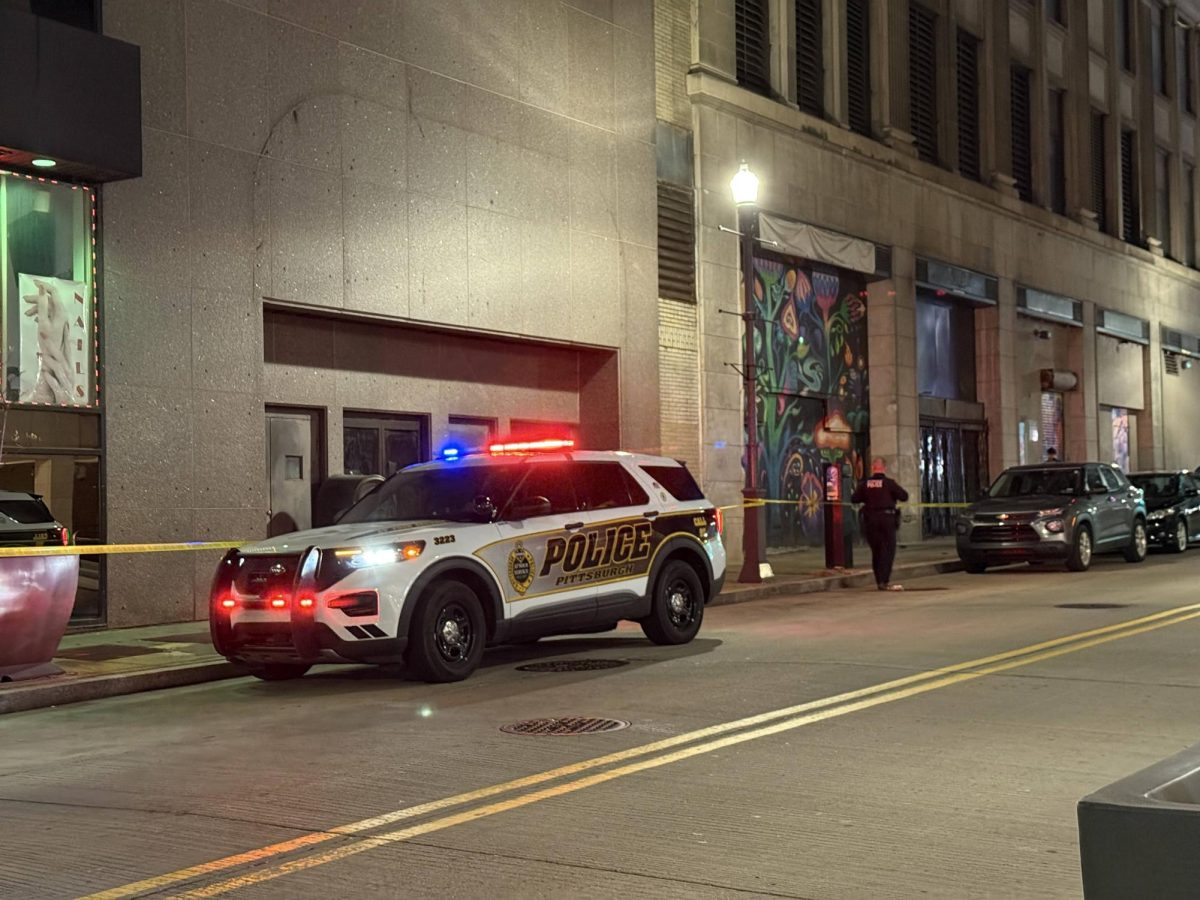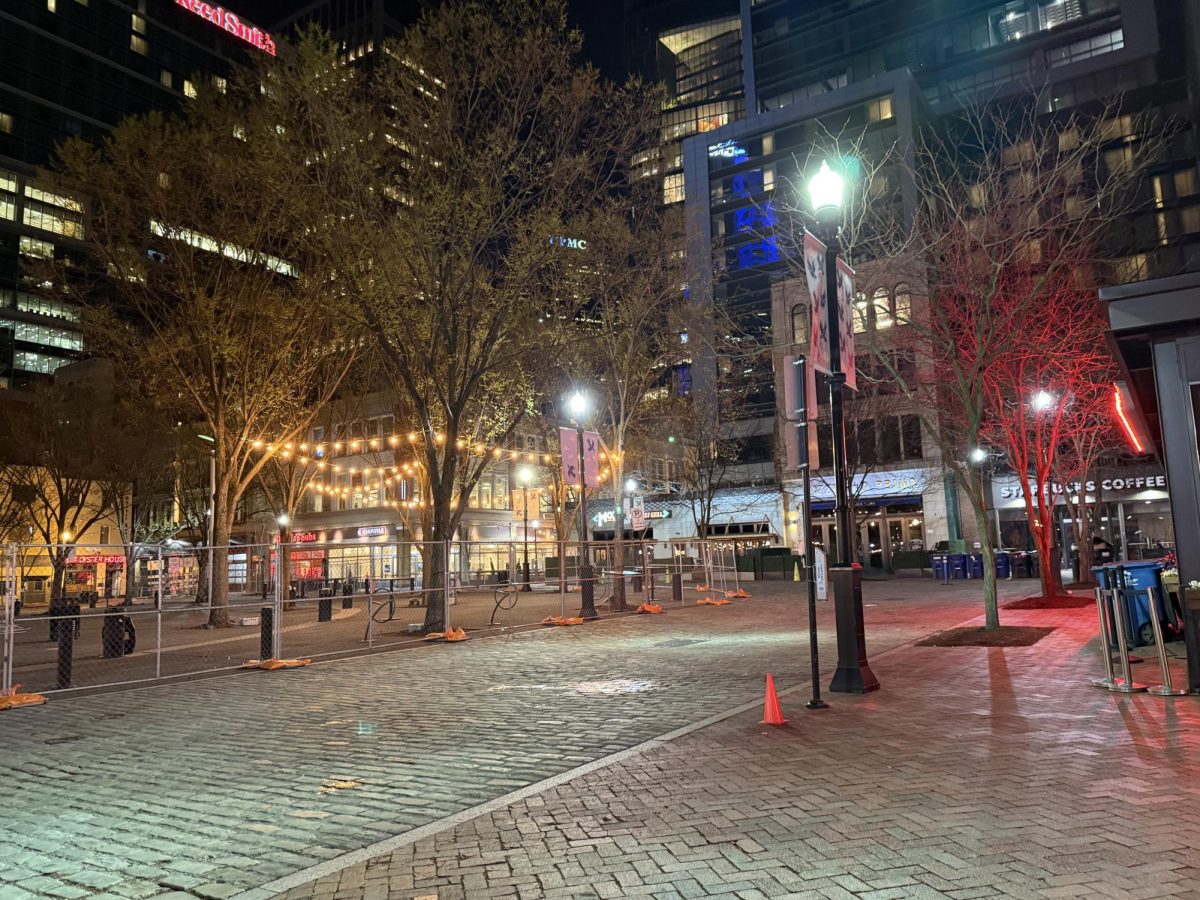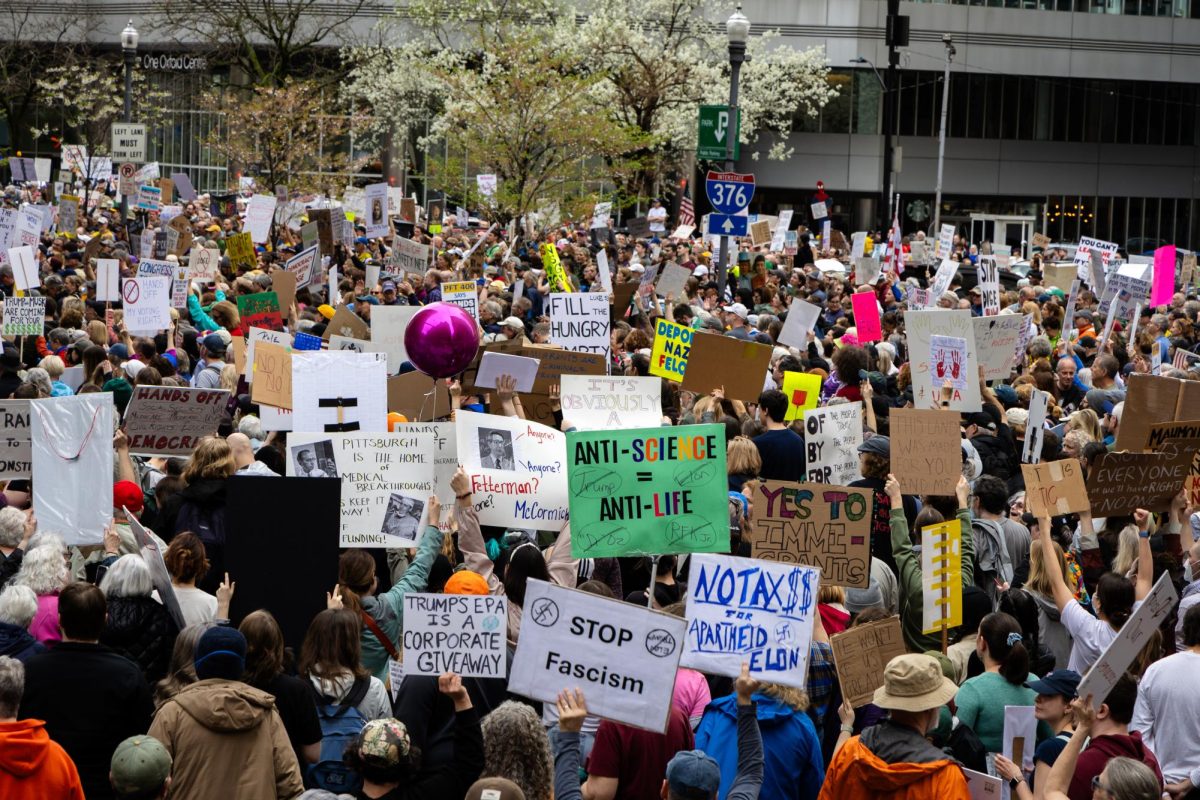Ninety-five years after the Pittsburgh Agreement formed the state of Czechoslovakia, Pittsburgh welcomed back members of the Czech Senate to Point Park University for the world-renowned Prague Writers’ Festival.“We were really happy to be invited to Pittsburgh, since we celebrate our 95th anniversary of the establishment of Czechoslovakia, and the Pittsburgh Declaration preceding it,” said President of the Czech Senate Milan Stech in a press conference in the University Center on Oct. 18.“It gives us an opportunity to remind ourselves what happened 95 years ago and express our gratitude to Pittsburgh and to the United States for the support they provided us at that time. Although Czechoslovakia has since then separated in two, we can now talk about the birth of two new nations.”The festival’s theme, Birth of Nations, coincided with the 95th anniversary of the creation of the Czechoslovakian state with the signing of the Pittsburgh Agreement. The festival, which ran from Oct. 18 to 19, featured writers from all over the world, including Anita Desai from India, E. L. Doctorow from the United States, Hamdy El-Gazzar from Egypt, and Eda Kriseová and Martin Vopěnka from the Czech Republic.The President voiced his support for the Prague Writers’ Festival.“We need to support events that bring authors to Prague to talk about why they write and share their ideas,” he said.Michael March, president and founder of the Prague Writers’ Festival, said he was pleased to be in Pittsburgh and that the festival is now entering a new space, allowing for more varied reading and discussion.March also commented on the theme of Birth of Nations with the Pursuit of Happiness during his time at the press conference.“The nation is a cultural organization. The state is a political organization, and they must work together to revive the old ideas and come together in a cultural sense, in a political sense,” he said. “They must have dialogue.”Doctorow, author of “Ragtime” and “Billy Bathgate,” read an excerpt from his upcoming novel “Andrew’s Brain,” Friday evening. El-Gazzar, Kriseová, Vopěnka, and Henry Reese, co-founder and president of the City of Asylum/Pittsburgh participated in a discussion of the Freedom of Literature Saturday evening with moderator Steven Sokol, CEO of the World Affairs Council of Pittsburgh.The discussion centered on censorship the authors had experienced in their own lives, from Kriseová’s dissident under soviet oppression which led to her being banned from publishing to El-Gazzar’s issues with Egypt’s traditional taboos of “sex, policy, and religion,” as well as his coverage of the Egyptian Revolution.Kriseová spoke about joining Prague’s intellectual dissidents and the expectation to write for or against something.“Writers shouldn’t write to solve the problems of mankind,” said Kriseová during the discussion. “They should write from their own inner need to write.”The panelists also discussed the effect of freedom of literature on the readers.“The danger for literature now is the need to be profitable,” said Vopěnka, Czech author and publisher. “Literature is full of cheap copies and the vast majority of people read stupid books. Profound ideas are now free to everyone, but only accessed by a few.”Reese spoke from his experience with City of Asylum on the need to protect literary writers.“Journalists have institutions to protect them; literary writers do not,” said Reese. “[Journalistic] institutions do not protect ideas and generalities that translate. Perhaps these ideas are not translated contextually, but we can benefit from their meaning as a whole…[Censorship] affects the common imagination of society. That is loss that needs defended by freedom of literature.”
Festival theme resonates with document signed in Pittsburgh
Written By Jane McAnallen
•
June 29, 2016
0
Navigate Left
-
NEWSNew dean hired for the School of Arts and Sciences
-
 NEWSOutgoing SGA president and vice president talk about their accomplishments, hopes for next year's administration
NEWSOutgoing SGA president and vice president talk about their accomplishments, hopes for next year's administration -
 NEWSRangel and Balfe sworn in to lead SGA
NEWSRangel and Balfe sworn in to lead SGA -
 NEWSApartment project at former YWCA building in limbo despite extra funding
NEWSApartment project at former YWCA building in limbo despite extra funding -
NEWSTuition to increase 3.8%
-
 NEWSCrime report for April 7 to April 14
NEWSCrime report for April 7 to April 14 -
NEWSCongratulations to our graduates!
-
 NEWSMarket Square partly shut down until next year for renovations
NEWSMarket Square partly shut down until next year for renovations -
NEWSSGA spends leftover funding, discuss university heads
-
 NEWS'HANDS OFF!'
NEWS'HANDS OFF!'
Navigate Right

